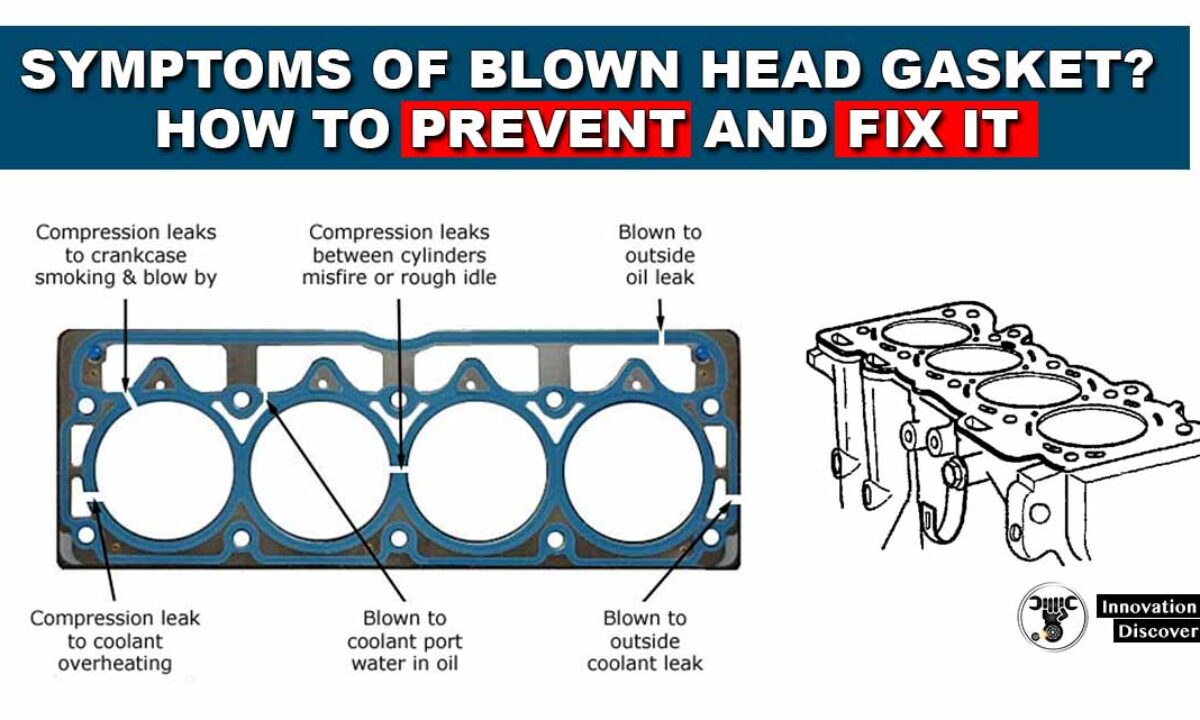
Overheating is perhaps one of the most common causes behind head gasket failures. The cause of a blown head gasket can also be due to a manufacturing defect or just high mileage.
Here are eight of the most common indications that your head gasket has failed.
Head gasket blown causes. What Can Cause a Blown Head Gasket. One of the best ways to prevent a catastrophic head gasket failure is to keep your car at the proper. Warped or Cracked Block or Head.
An engine that has overheated can warp or crack due to the way heat distorts and. Over time the head. Blown head gasket causes Your cars engine operates in extreme conditions with intense heat.
If this heat becomes more than normal your engine can overheat causing a blown head gasket. The extra heat results in the cylinder head and engine block expanding too much which results in a failure in the head gasket. First the most common cause of a blown head gasket is overheating.
If your engine is run hotter than it was designed to things will expand further than intended causing both the breakdown of the gasket material and the metal in your engine to warp causing a blown head gasket. Common Faults That Can Lead to a Blown Head Gasket 1. Overheating is perhaps one of the most common causes behind head gasket failures.
Not only can an. Preignition or detonation is perhaps about as common as overheating as a source of head gasket. What causes a blown head gasket.
The main reason for the blown head gasket is the extremely high temperature emitted from the engine. This high temperature is the result of the coolant leak or not having enough coolant in the radiator another reason if radiator fan motor does not work or cut off the fuse. 5 Causes for a Blown Head Gasket 1.
OverheatingThe biggest cause of a blown head gasket is overheating. Usually the head gasket armor around the. Installation ErrorIf youve had a blown head gasket replaced on your car and solved the problem of why it blew in.
Hot SpotsThere are. Besides allowing coolant into the combustion chamber an internal head gasket leak allows exhaust gases into the coolant. This can cause bubbles to be in the radiator or coolant reservoir making the coolant look like its boiling even when its cold.
A head gasket failure may be caused by an engine overheating one too many times as a result of a clogged radiator coolant leak faulty fan etc but the blown head gasket can also cause the engine to overheat. The head gasket which is located between the engine block and cylinder head seals the combustion chambers to prevent compression loss. It also plays a role in sealing the coolant and oil passages running between the engine block and head.
Head gasket failure is almost always the result of engine overheatingbut there are some instances where a head gasket can deteriorate over time or fail as the result of a manufacturing defect. When a Head Gasket Fails The signs of a blown head gasket can be subtle. Here are eight of the most common indications that your head gasket has failed.
An external oil or coolant leak at the seam between the engine block and cylinder head is a sign that you have a head gasket failure or a cracked block. A telltale sign of this problem is white smoke coming from your exhaust which is from coolant leaking around the head gasket. If the timing of the combustion process is off even slightly it can send too much pressure into the cylinder head.
This can cause the head gasket to fail. The most common cause of a blown head gasket is engine overheating. The cause of a blown head gasket can also be due to a manufacturing defect or just high mileage.
Some car engines were poorly designed where the head gasket fails from normal operation and not due to any other causes. The main cause for a blown or damaged head gasket is extreme engine temperature. High engine temperatures are often caused by a coolant leak or just not having enough coolant in the radiator.
It is important to note that different head gaskets will falter at different stages and temperatures. A driver will often wonder what causes a blown head gasket. The truth is anything from the coolant system to the combustion chamber could be responsible.
Most confusing is the fact that symptoms which resemble those of head gasket failure will sometimes originate from other causes. Head gasket failure occurs when the gasket is no longer able to provide proper sealing between the cylinder head and the engine block. In most cases the head gasket is physically broken allowing the fuel and air mixture to escape the cylinder head.
This in turn causes the engine to lose power and torque. Allowing your coolant level to run low can cause damage to your head gasket. When coolant isnt available to pull engine heat from your block and heads the extra heat can cause expansion on your head gasket which often results in a blown head gasket.
These forces can wear your head gasket out over time and cause it to fail. What Causes Head Gaskets to Blow. A head gasket is probably the most important sealant in your engine It seals in both very hot combustion gases and the coolant in the engine which can be a cold or moderate temperature.
The scope of temperatures and the wide surface area of the gasket can cause the gasket to incur leaks. The most common cause of a blown head gasket is engine overheating. When the engine gets too hot the cylinder head expands thermal expansion which can crush the head gasket and cause failure.
Once a head gasket has failed it can cause all manner of problems including. 1 An overheating engine.
